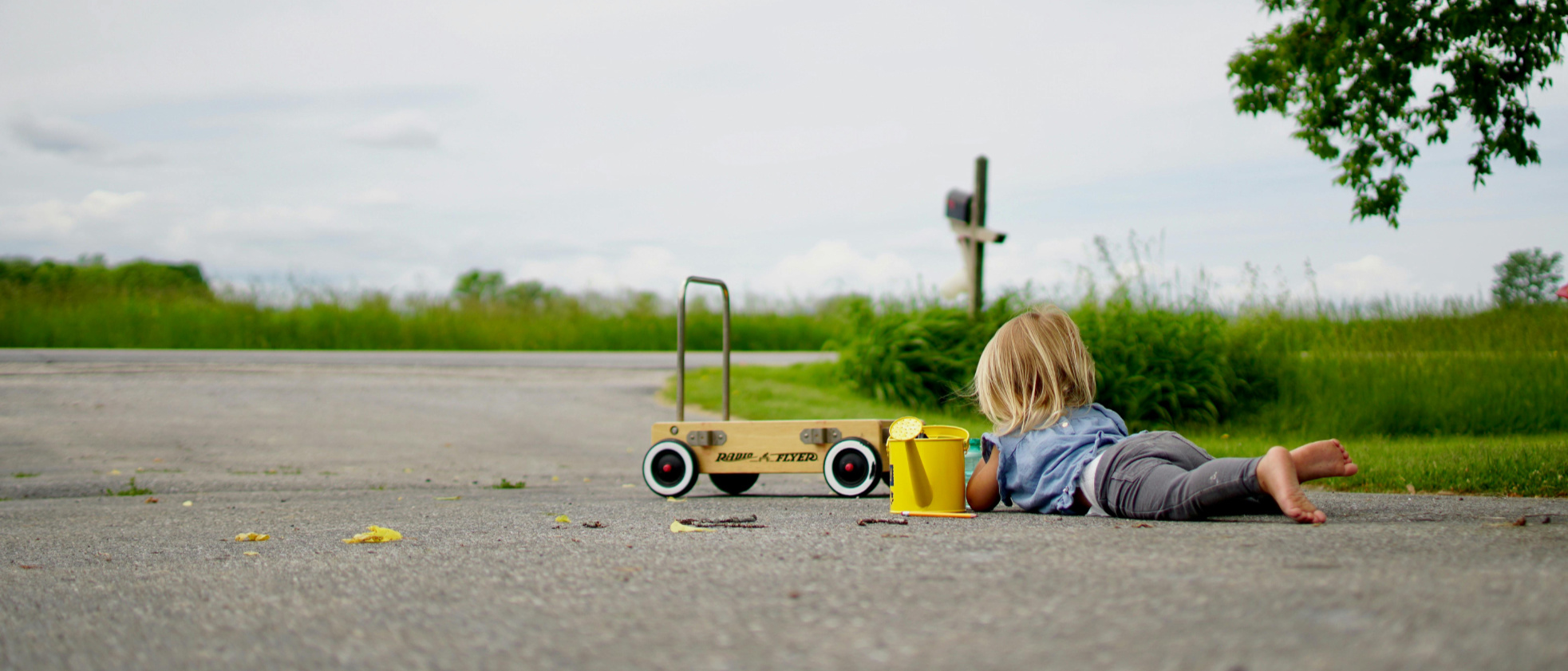“If you don’t think children have creativity and rationality, you are unlikely to notice it. That will adversely affect your interactions with them. That might itself create the very lack of safety you fear.”
– Sarah Fitz-Claridge
From the archives: The original post was posted on 2nd December, 1994
Someone had said:
“It reminds me that when I take a walk with my children and we cross the street, to hold them very firmly. You never know when some car is going to come barreling down the street and a good hold of the child may save his or her life.”
I had replied:
“Personally I’d rather have a child who understands the danger of the road than one whose safety depends entirely upon my being there.”
Matthew replied to me:
“I think the idea is that young children are not likely to be logically or analytically mature enough to make the necessary cause-effect links, particularly for situations where the effect is not consistent (that is, you don’t ALWAYS get hit by a car if you walk into the street);”
Someone else commented:
“BINGO! Matthew hit the nail on the head. From a biological standpoint, the human brain undergoes many changes during infancy, and potential for higher reasoning, long term memory and cognitive functions are not fully developed until several years have passed (slower in some and faster in others, but a range of ages can be established of about 4-8). The biological studies may be somewhat new, but this knowledge is eons old. . . . .”
Steve R. added:
This idea that children are not fully cognitively developed seems to be crucial in the discussions we’re having. The main thing I’d like to see from Tim and Sarah is how their ideas take this into account (or if they dispute this view of children).
Err, although Tim started [the Taking Children Seriously email-based discussion forum] with me, he might not like being lumped in with me, and I should not want to speak for him.
In my view, the stuff purporting to link alleged cognitive deficits with biological brain development is a pseudoscientific attempt to justify the traditional coercion of children, fallaciously arguing from The Authority of Science.
I do not share that view of children’s development, but even if I did, that view misses the fact that very young children trust and learn from their parents and generally like to stay close to them. (Well, they do if they have not been given a reason not to trust them!) And it is not difficult to convey the danger of traffic to pre-verbal children. I started showing my first child dangers just before she started crawling, and realised I could have started even earlier, and started showing my youngest long before she started crawling.
Babies may not have the explicit language to understand explicit explanations, but if you are viewing them as people with reason and creativity instead of as unreasoning blobs, it is obvious that they have reason and inexplicit understanding or how could they learn language and all the other complex things they are learning?
It is such a tragedy that so many parents do not see how brilliant even babies and the youngest children are. Even with my view of children I am still often amazed and in awe of their learning. If one views babies and very young children as burdensome blobs devoid of reason, that must deprive one of so much joy as a parent. And just think what that view of children is doing to one’s developing relationship with one’s children.1
Not that I don’t understand parents’ fears about roads—I do sympathise! I had that irrational fear2 myself when my very young child didn’t want to hold my hand on our extremely busy London streets. Yet a friend of mine who in no way shares my view of children—she believes in universal compulsory education and even hits her child!—had no such fear when her own very young child didn’t want to hold her hand, and she thought I was mad for worrying that my child might run into the road!
Notes added later
1. It is not just that viewing our children this way is likely to adversely affect the relationship, it is that this blindspot has the effect that the parent-child joint knowledge-creating system is being deprived of the child’s ideas. Those ideas are in effect being discounted on the basis of the source, instead of being allowed on the table as it were. Impeding the growth of knowledge is not in anyone’s interests.
2. It is possible that children subjected to trust-damaging coercion might thereby fail to learn vital knowledge relating to safety, resulting in the kind of catastrophes envisaged with respect to roads. So it is not necessarily obvious how to navigate such dangers. However, my point is that how you view children (whether as sovereign people whose lives are their own, and who have creativity and rationality just like we adults do, or as cognitively-lacking beings without reason) largely determines your experience of them, and what knowledge creation happens jointly with them. If you don’t think they have creativity and rationality, you are unlikely to notice it. And that will adversely affect your interactions with them. And that might itself create the very lack of safety you fear.
See also:
- “How in practice do you tell pre-verbal children about dangers given that they do not understand explanations?”
- Taking sick children seriously
- “How did Taking Children Seriously start?”
Sarah Fitz-Claridge, 1994, ‘Running into the street’, https://takingchildrenseriously.com/running-into-the-street
